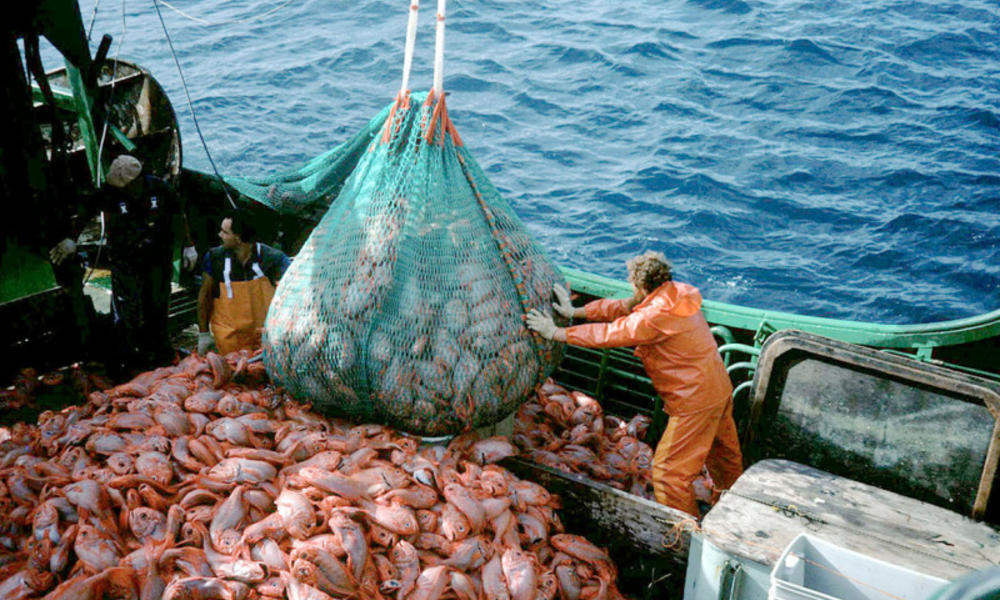11 Dec 2024

Tired Earth
By The Editorial Board

here has never been a more urgent time for seafood businesses and fishing nations to make a commitment to sustainability. The world’s oceans are in trouble, with marine life plummeting and the people who are dependent on the sea for income and food left increasingly vulnerable. Data shows populations of fish and other marine vertebrates, including marine mammals, reptiles and birds have halved since 1970.
Fourteen years ago when I was based with WWF in the Pacific – where most of Australia’s tuna is sourced – I saw first hand the stress that was being placed on the ocean ecosystems. Valuable fish stocks were declining as foreign fishing nations began eyeing the western and central Pacific’s tuna stocks as their next goldmine.
I saw local fishermen returning at the end of each day with fewer fish to feed their families. I watched as they unloaded their diminished catches, made up mostly of juvenile fish, and it brought home to me the fact that overfishing is not just a threat to ocean biodiversity. It is as much a humanitarian issue and one with profound implications for food security as demand for seafood grows and the world’s population marches towards 9 billion by 2050.
This is not just a problem for the Pacific either, as WWF’s Living Blue Planet report revealed last year. It showed a decline of 49% in the size of marine populations globally over the course of a single generation, largely as a result of overfishing and destructive fishing practices.
With many commercial fish stocks already in serious decline, it is clear we have an enormous challenge on our hands, made all the more urgent by the fact that global seafood demand is expected to grow another 50m tonnes by 2025.
As with climate change, people living in Pacific Island nations are on the frontline of this environmental crisis. They now source between 50 and 90% of their protein from fish, and for millions in the region, fishing is their only source of income.
As fishermen, processors, suppliers, buyers and retailers strive to meet the growing demand for seafood, the ability of Pacific islanders to feed their families and make a living from the sea is reduced. Within 15 years, an additional 115,000 tonnes of fish will be needed across the Pacific to provide communities with the livelihoods and protein they require, and to satisfy the demand from industrial-scale coastal fishing operators.
What was also abundantly clear to me was the fact that the food security threat faced by Pacific Island communities, associated with overfishing, is largely one created by foreign nations, like Australia, which source the majority of their tuna from the western and central Pacific.
In response to this, we established WWF’s first regional tuna fisheries program, with support from the David and Lucille Packard Foundation, in an effort to stem overfishing in the region. The intent was to promote market-based improvements to the way tuna was sourced by leveraging the purchasing power of big businesses at various points in the seafood value chain, and thereby securing large-scale change for the better.
Now, a decade and a half later, we have arrived at a transformational moment in the realisation of that goal. Australia’s largest supplier of canned tuna – John West Australia, with 43% of the market – has made a market-leading commitment to only source tuna from the western and central Pacific that has been certified as sustainable by the Marine Stewardship Council.
The MSC is widely recognised as the world’s most credible sustainability standard for wild-caught fish, and is the only wild-capture fishery standard to meet the United Nations’ guidelines for eco-labelling on fishery products.
This is huge news, amounting to a sustainable revolution for consumers of tuna in Australia, with 100m tins – nearly half of all cans of tuna in shops across the country – now credibly certified as sustainable.
In the Pacific, this will drive fisheries reform throughout the region, helping to create a more sustainable economic future for island nations. It means changes to fishing technology and behaviour that will see fewer non-target marine species like sharks, rays, turtles and dolphins killed during the course of catching tuna. It also means more rigorous auditing of fish catches, so that stocks are not overfished to the point of collapse.
The sheer scale of John West Australia’s operation means the shift to sustainably sourced tuna is likely to have a profound influence over the whole of the canned tuna industry in Australia. It means that other canned seafood retail and supply businesses now have stronger incentives to move towards MSC certification, as sustainably sourced tuna becomes the norm and not the exception.
Critically, we are seeing a range of businesses playing a crucial role in turning the decline of our oceans around. As this momentum grows, we will see smarter fishing practices being implemented across the world’s oceans to eliminate bycatch, waste and overfishing, along with a renewed intolerance for unregulated fishing. The world is also moving to cut carbon pollution, which is threatening a potentially catastrophic acidification of the ocean.
Thanks to industry leadership, we have seen what’s possible when it comes to shifting towards sustainable seafood, and it couldn’t have come at a more critical moment for the world’s oceans or for the millions of people who depend on the sea for their survival.
To secure a healthy future for our oceans and to ensure we can continue to feed a growing world population, we must now aim for 100% of the canned tuna market to be sustainable.
Source: theguardian.com
Comment